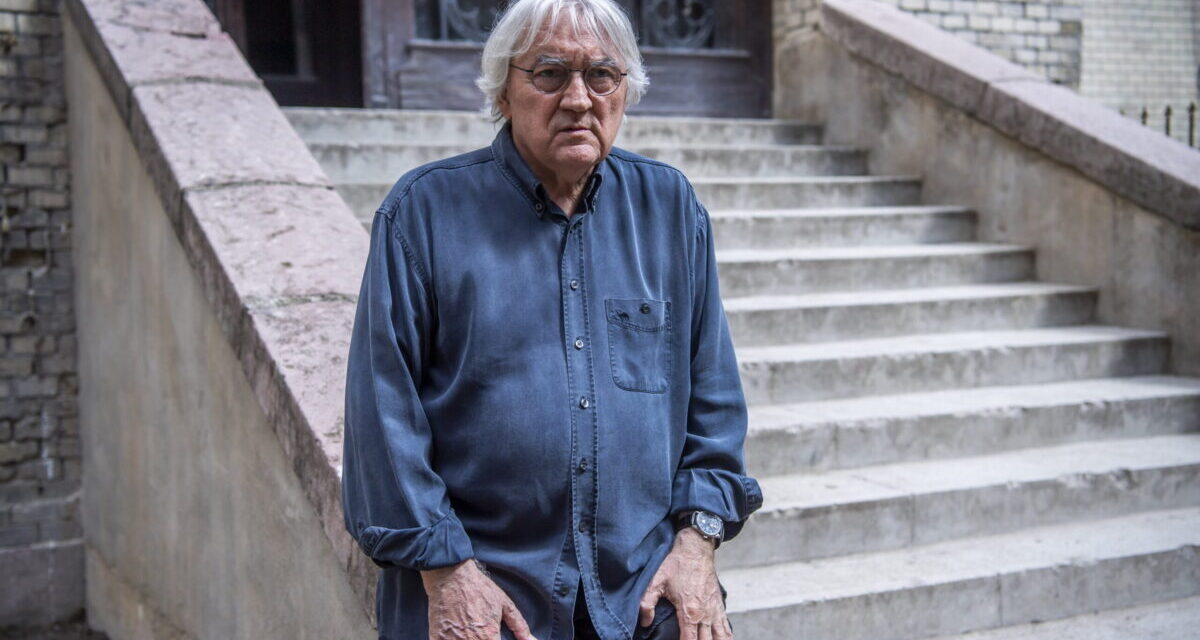The Jóisten was somehow always with me, constantly guiding me towards the good, says cinematographer-filmmaker Lajos Koltai in the interview.
In an interview with Mandiner, the artist who once came close to winning an Oscar with Maléna talks about dedication, legendary Hungarian films and international successes, dedication as an actor and a mother's love that accompanies her throughout her life in connection with her new film Semmelweis.
He returned a month ago from the United States, where the film was presented in two places, New York and Los Angeles. How was your reception overseas?
In New York, we timed the presentation to the anniversary of the 1956 revolution and freedom struggle, the screening was held at the Museum of the Moving Image. This is a legendary place next to the Kaufman studio, which was once the production base of Paramount Pictures, where all the big movies were made. It was a pride to present it in this very place. The hall was full, many people came, writers, actors, producers, even ambassadors and official guests. From the shocked silence at the end of the screening, you could feel that our film had an effect. We have received several indications that they are interested in distribution. A week later in Los Angeles, the work was shown at the Hungarian film festival, and we won three awards with it.
The only thing worth talking about is love. If it even makes sense. I believe it is"
The fact that it is already attracting international interest is obviously also due to the choice of topic: Semmelweis's name is known worldwide, his fame is comparable to that of Puskás.
Whose idea was the movie? I was approached by producer Tamás Lajos, who had a long-standing dream of one day making a film about the savior of mothers. There are statues of the legendary obstetrician in 28 places around the world, and many films have been made about him. I myself was six years old when Frigyes Bán's film was completed in 1952, and I also knew the 1938 work with Uray Tivadar. However, I did not know much about Semmelweis.
What caught your eye in his story? The film follows only a part of his life, the events of 1847, and does not, for example, cover the circumstances of his death.
We tried to decipher who Semmelweis really was, what he accomplished, and what his discovery really was. As small as it seems, what it has come up with is so huge. At the maternity clinic of the public hospital in Vienna, he discovered that puerperal fever was caused by doctors and medical students examining pregnant women with unsanitized hands after an autopsy. After he realized the most terrible thing, that they themselves transfer the wave poison to the women giving birth, that is, they are the cause of the tragedy, he started researching how this could be prevented. He poured all kinds of medicine on his hand, but nothing helped, the pungent smell always remained on the tip of his finger. Then comes the innocent, beautiful discovery: his host is washing in the tub when Semmelweis sees him, asks what's in the jar, then pours the entire bottle of bleach into the water and starts washing his hands in it. And suddenly the smell disappears. Since the introduction of chlorinated hand washing, the number of deaths has dropped drastically.
It doesn't matter that circumstances are bad, that people let you down, if you want to go your own way and persevere, you can succeed.
At the presentation, he stated that he did not want to make a scientific film, but wanted to present people. What kind of person was Ignác Semmelweis?
He was special in that he obsessively wanted to know everything, and for that you have to go to the bottom of things. He didn't let the many deaths stop him, and started dissecting the dead mothers, which was not done much before him. He learned dissection from a German doctor who had dissected thirty thousand bodies. He followed the mystery with the same determination. He felt that the real secret was "inside", probably in them, they were doing something wrong, but no one wanted to understand and acknowledge it. We wanted to show through his figure that if a person wants to get ahead, he will encounter obstacles on any path, but if he has strength and passion to drive him, he can find the path leading to the goal. Semmelweis was not recognized professionally, his own boss, Doctor Klein, hindered him the most, but he went forward on his own path. I wanted to show this character, this attitude.
The world premiere of the Semmelweis film was held in New York
The same determination can be heard from the speeches of our recent Nobel laureates, Katalin Karikó and Ferenc Krausz, and Minister János Csák compared the legendary doctor to them at the presentation in New York.
When I received the Lifetime Achievement Award in Los Angeles, in my acceptance speech I recalled a famous American acting school, where established actors such as Paul Newman or Meryl Streep return. One of their best practices is to have someone deliver Hamlet's monologue while the others are tasked with obstructing him. They can do anything to him, push him aside, throw him down, pull the rug out from under him, but he has to say the monologue without stopping, as clearly and as devotedly as possible. This is also what Semmelweis' story is about: it doesn't matter if the circumstances are bad, if people let you down or turn against you, if you want to follow your own path and persevere, you can succeed. This has also guided me throughout my life. There were difficulties and obstacles in my career, I encountered envy and hatred, but you have to overcome them.
"You are a very brave man," they said, even though I just had to follow what Kertész wrote.
How did you choose the title character H. Miklós Vecsei?
It was a difficult process, by the time I found her and the female lead, I now know that she couldn't have been played by anyone else. I remember the first time the two of them met, our costume designer Györgyi Szakács, with whom we made Fatelessness and all the Szabó films at the time, brought a suit, one from that era, we gave it to Miklós, and I immediately felt that Semmelweis was standing before us. It fit perfectly, he didn't even want to take it off. We recorded a small scene and it turned out so well that I knew I had made the right decision. The joint work was wonderful, I was impressed by the directness and naturalness of Miklós, as he devoted himself to the role. I also have to emphasize the performance of Katica Nagy, I can only compare it to the highest quality American actresses. By the way, the female characters in the film are very strong, as they develop during the story, they go through an emotional rollercoaster. It is not an easy task to shape them.













